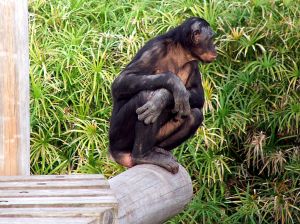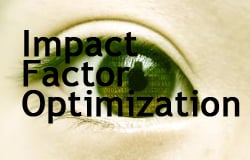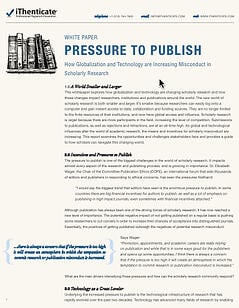Part 3 - Scholarly Publishing - Adaptating to Change
Menu
-
Solutions
-
Our Solutions
-
AcademicSurface potential plagiarism prior to publication with iThenticate’s expansive content database.
-
AdmissionsScreen personal essays for potential plagiarism and help ensure the highest level of integrity even before matriculation.
-
GovernmentEnsure the originality of public-facing content, from legal documents to grant applications, and reporting.
-
MedicalPrevent invalid findings dissemination, grant misconduct, and improper medical practices.
-
PublishingProtect your journal’s reputation by publishing only the highest quality articles.
-
-
Resources
-
Our Resources
-
FAQFind the answers to the commonly asked questions about how iThenticate works.
-
Content DatabaseComprehensive coverage you can trust across the internet, scholarly articles, and industry papers.
-
GuidanceSearch our comprehensive site for the launch, integration and usage information.
-
-
Pricing
-
Login
-
Buy Credits

 Dan Kimber, a former columnist at
Dan Kimber, a former columnist at  Written by Eric Hoppe, Account Manager, Constant Content. Plagiarism has existed nearly as long as the written word itself, but it has never been easier for plagiarists to cut and paste some else’s words and claim them as their own. That can be a big problem for webmasters in search of
Written by Eric Hoppe, Account Manager, Constant Content. Plagiarism has existed nearly as long as the written word itself, but it has never been easier for plagiarists to cut and paste some else’s words and claim them as their own. That can be a big problem for webmasters in search of  Impact factor is a big deal for scientific journals. The impact factor score is based on the average number of citations a journal receives – an approximate measure of how important and relevant a journal is to the scientific community. For a journal (along with its editors and authors) impact factor can determine distribution deals, grant funding, and the overall success of a publication. Although the impact factor score is mathematically calculated for each journal, in the end its foundation is laid by one organization:
Impact factor is a big deal for scientific journals. The impact factor score is based on the average number of citations a journal receives – an approximate measure of how important and relevant a journal is to the scientific community. For a journal (along with its editors and authors) impact factor can determine distribution deals, grant funding, and the overall success of a publication. Although the impact factor score is mathematically calculated for each journal, in the end its foundation is laid by one organization:  Three
Three 
 Science Reporting and journalism have changed quite a bit over the last several decades. In the past, there were only a few central news sources that people got their scientific information from. For example, viewers would tune into the
Science Reporting and journalism have changed quite a bit over the last several decades. In the past, there were only a few central news sources that people got their scientific information from. For example, viewers would tune into the